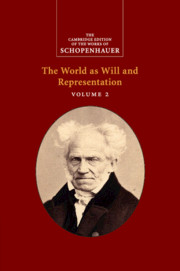Chapter 13 - On the Doctrine of Method in Mathematics
Published online by Cambridge University Press: 30 June 2022
Summary
The Euclidian method of demonstration has produced its most biting parody and caricature from out of its own womb in the famous controversy over the theory of parallels and the attempt, repeated yearly, to prove the eleventh axiom. This asserts, and indeed through the intermediary criterion of an intersecting third line, that two lines inclined towards each other (which really means: ‘smaller than two right angles’) if sufficiently extended, must meet, a truth that is supposed to be too complicated to pass for selfevident, and thus is in need of a proof which, however, is not to be found, precisely because there is nothing more immediate. This scruple of conscience reminds me of Schiller's question of right:
For years I have used my nose to smell:
But do I really have a demonstrable right to it?
And indeed it seems to me that the logical method rises to the point of niaiserie here. But precisely through the controversies concerning this, along with the futile attempts to present what is immediately certain as merely mediately certain, the independence and clarity of what is intuitively evident is in contrast with the uselessness and difficulty of logical conviction, a contrast that is no less instructive than it is amusing. People do not want to admit the immediate certainty of the parallel axiom because it lacks that merely logical certainty that follows from the concept and is thus based solely on the relation of the predicate to the subject in accordance with the principle of contradiction. This axiom is a synthetic a priori claimand as such is guaranteed by pure, non-empirical intuition, which is just as immediate and certain as the principle of contradiction itself, a principle from which all proofs first receive their tenure of certainty. This is fundamentally true of every geometrical theorem, and the line between what is immediately certain and what first needs to be proven is an arbitrary one. – I amsurprised that the eighth axiom is not the target of attacks instead: ‘figures that coincide are equal to each other’.
- Type
- Chapter
- Information
- Schopenhauer: The World as Will and Representation , pp. 139 - 141Publisher: Cambridge University PressPrint publication year: 2018

